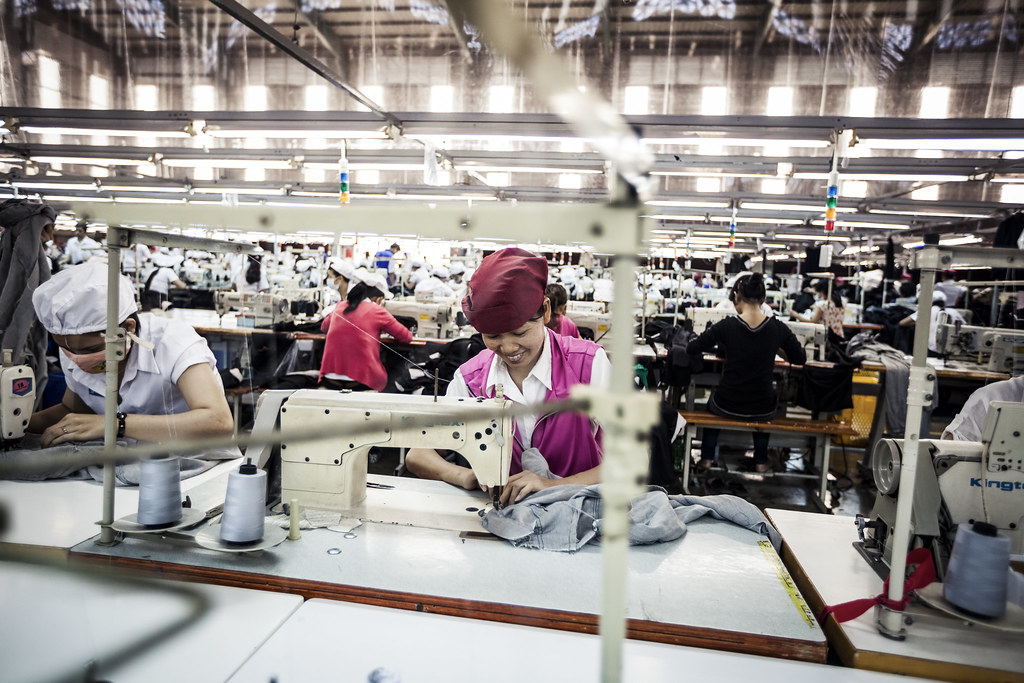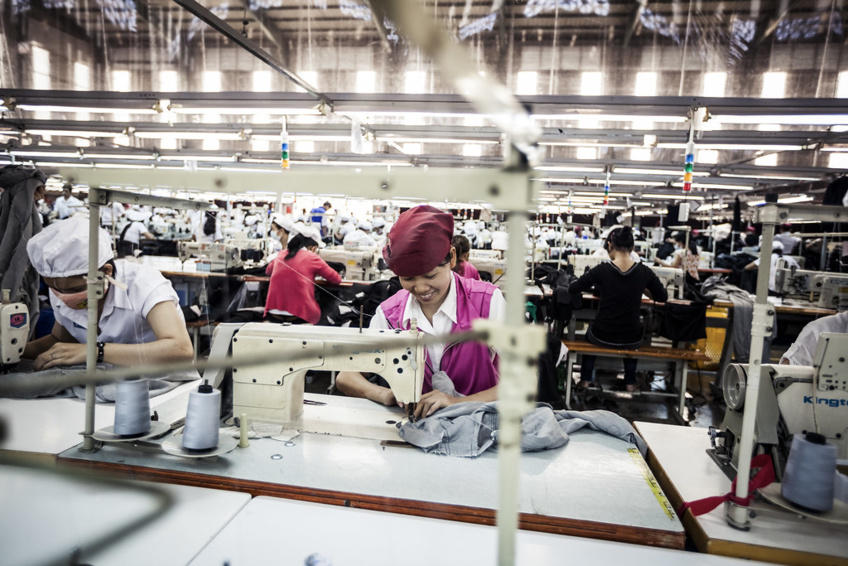Women in the garment industry juggle demanding jobs to support their families and secure their futures. However, many are paid in cash, which limits their access to financial services, reduces their ability to save, and increases the risk of theft. They often have limited control over their earnings, frequently giving part or all of their income to family members.
For employers, paying wages in cash is inefficient due to the time-consuming nature of counting and distributing money, as well as the risks associated with transporting and storing cash.
Digitizing wages responsibly, combined with gender-responsive financial capability training, can address these issues and foster social and economic progress. For millions of garment workers, it can provide transparency in pay, access to formal financial accounts, a secure place to save, and increased economic agency and empowerment with the right support. This approach can also enhance financial health, enabling workers to manage daily expenses, handle emergencies, achieve future goals, and gain confidence and control over their finances.
Investing in women's financial health has a multiplier effect. Research shows that when women control household finances, they tend to invest in essential needs like food security, health, and education, leading to better outcomes for families and communities. For businesses, wage digitization can improve efficiency, demonstrate wage compliance in factories, create new market segments for financial service providers, and contribute to broader economic stability and growth. This shift supports the UN’s Sustainable Development Goals, fostering a more inclusive and resilient economy.
A Cambodian garment worker, Vorn, shared how digitized wages improved her life: "I know when my salary is coming in. I can pay utility bills, transfer money to my parents, make loan payments, and withdraw or deposit cash whenever I want."
Transitioning from cash to digital wages has shown positive outcomes, especially when implemented with a gender-focused approach. Both women and men garment workers report improved financial health and well-being. RISE Financial Health training has enhanced participants' financial knowledge and skills, built trust in financial services, and increased control over household financial decisions, leading to better financial futures for themselves and their families.
For instance:
For employers, paying wages in cash is inefficient due to the time-consuming nature of counting and distributing money, as well as the risks associated with transporting and storing cash.
Digitizing wages responsibly, combined with gender-responsive financial capability training, can address these issues and foster social and economic progress. For millions of garment workers, it can provide transparency in pay, access to formal financial accounts, a secure place to save, and increased economic agency and empowerment with the right support. This approach can also enhance financial health, enabling workers to manage daily expenses, handle emergencies, achieve future goals, and gain confidence and control over their finances.
Investing in women's financial health has a multiplier effect. Research shows that when women control household finances, they tend to invest in essential needs like food security, health, and education, leading to better outcomes for families and communities. For businesses, wage digitization can improve efficiency, demonstrate wage compliance in factories, create new market segments for financial service providers, and contribute to broader economic stability and growth. This shift supports the UN’s Sustainable Development Goals, fostering a more inclusive and resilient economy.
A Cambodian garment worker, Vorn, shared how digitized wages improved her life: "I know when my salary is coming in. I can pay utility bills, transfer money to my parents, make loan payments, and withdraw or deposit cash whenever I want."
Transitioning from cash to digital wages has shown positive outcomes, especially when implemented with a gender-focused approach. Both women and men garment workers report improved financial health and well-being. RISE Financial Health training has enhanced participants' financial knowledge and skills, built trust in financial services, and increased control over household financial decisions, leading to better financial futures for themselves and their families.
For instance:
- In Cambodia, by the end of the program, 99% of surveyed women were paid into accounts (up 62 percentage points) and 84% reported saving regularly (up 38 percentage points). This increased confidence in managing financial emergencies within two years (up 25 percentage points).
- In Egypt, 73% of women workers found having a bank account helpful during the COVID-19 crisis as it facilitated wage management.
- In Bangladesh, there was a 19 percentage point increase in women’s involvement in household financial decision-making. They now discuss earnings use with family members.
Wage digitalization also led to significant payroll and production savings. Factories reported reduced time spent processing, counting, disbursing, and auditing payroll: 42% in Egypt, 59% in Bangladesh, and 84% in Cambodia.
With proper support, workers became active users of financial products and services, creating a new market segment for financial service providers. For example, in Bangladesh, following RISE Financial Health training, workers conducted 8-13 transactions a month, including airtime top-ups and remittances.
Our working paper, "Improving financial health and well-being in global supply chains through wage digitalization," discusses how responsible wage digitization and financial capability training improve financial health. It outlines opportunities for financial health practitioners and policymakers to collaborate with the private sector to scale the impact of wage digitalization.
Partnerships are crucial, which is why the Mastercard Center for Inclusive Growth has become the anchor partner for RISE's Financial Health focus area, doubling its support for women workers in global garment supply chains. Together, we aim to replicate and expand the benefits of responsible wage digitalization to more women workers, including expanding the program to Indonesia and Guatemala in 2024, and continue sharing insights with stakeholders.
Collaboration across sectors is essential to tackle the complex challenge of expanding global financial health and well-being. The garment industry, with its large female workforce, and the financial services industry, embedded in the digital economy, are vital partners for policymakers and practitioners to drive global change. Working together, we can accelerate progress, create lasting impact for workers and their families, and build more inclusive and resilient economies.


 Empowering Women in the Garment Industry through Wage Digitization
Empowering Women in the Garment Industry through Wage Digitization





 Companies
Companies